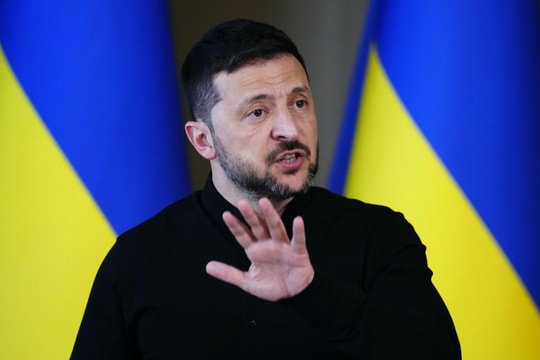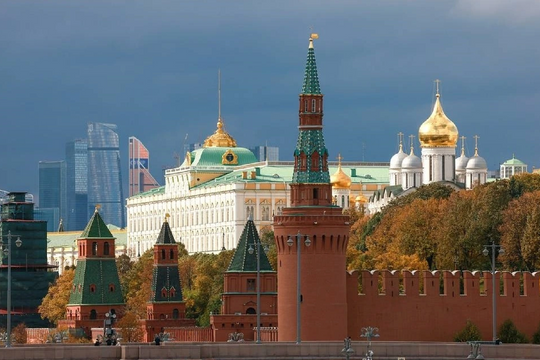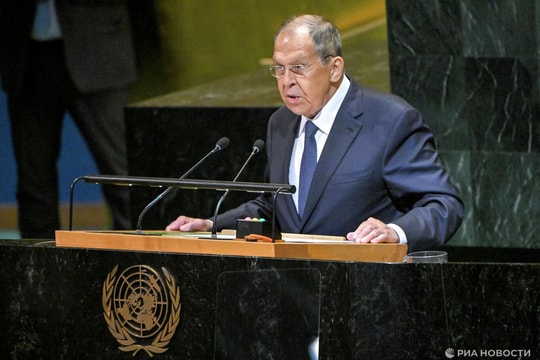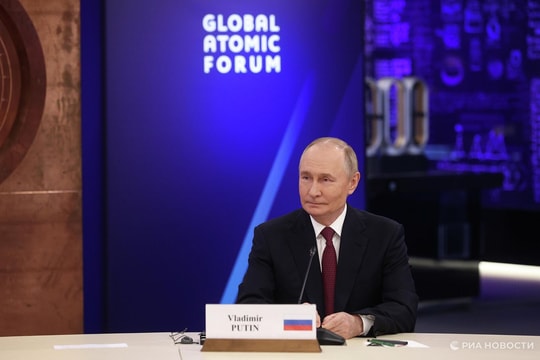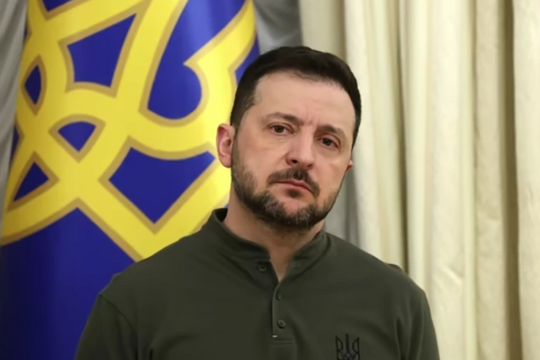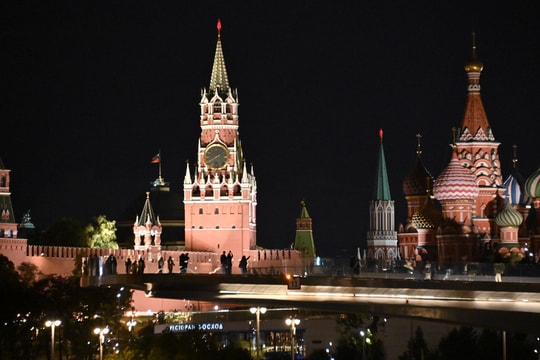India was caught between France and Russia when AUKUS was born.
France and India are unlikely to see any serious rift in their relations with the US, such as France leaving NATO and India leaving the Quad, but their relations with the US will not be the same due to AUKUS.
France helps India with nuclear attack submarine technology?
After withdrawing from Afghanistan, the US realized that its best military option now was to rely on a Cold War-style alliance with its most trusted partners at the core - the premise of the birth of a new security partnership: Australia-UK-US (AUKUS). Australia abandoned a $43 billion contract with France to build conventional submarines, opting for nuclear-powered vessels based on US-UK technology.
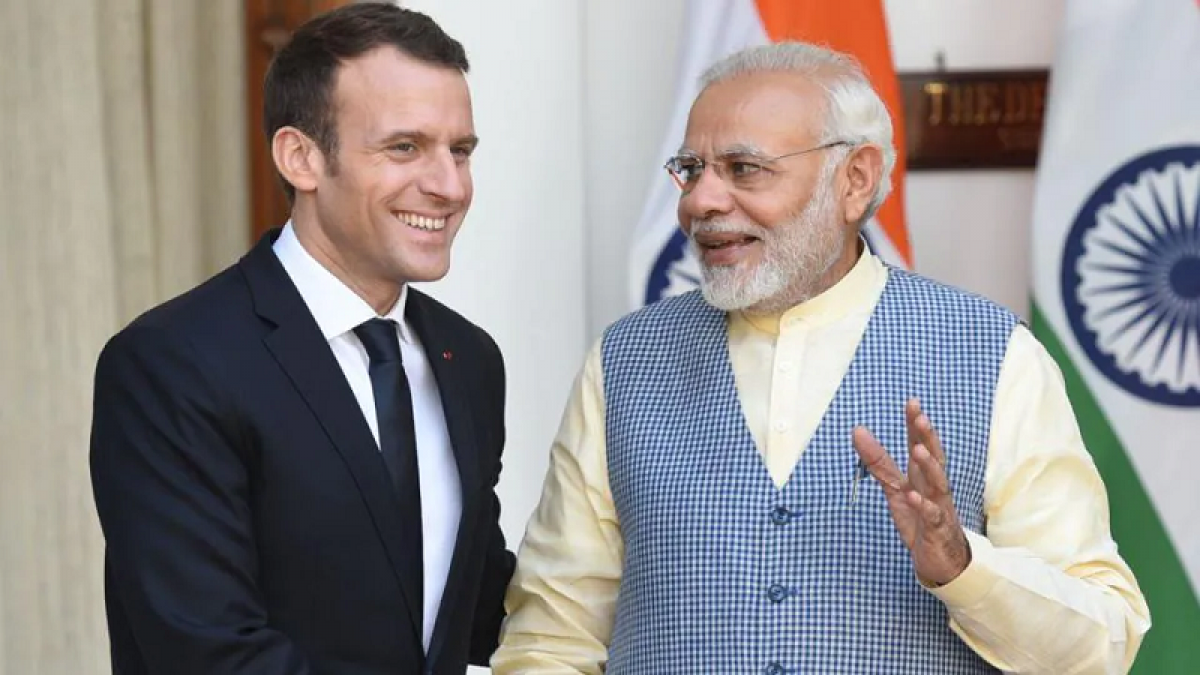 |
| French President Emmanuel Macron and Indian Prime Minister Narendra Modi. Source: wikipedia.org |
Australia has always been seen as a junior partner and although the British tested their nuclear weapons there, Canberra has traditionally kept a low profile on anything nuclear. But based on their shared roles in World War I and II, Australia, along with Canada, New Zealand and the UK, has built a global intelligence network under a top secret agreement between the UK and the US that dates back to 1947 and has been amended over time. AUKUS is seen as an update to that agreement for the demands of the new era.
A major drawback of AUKUS is that it leaves out France – the only European country with 2 million citizens in the Indo-Pacific. Paris has an Exclusive Economic Zone (EEZ) of about 11 million square kilometers and is a strong supporter of the Indo-Pacific strategy. Australia’s cancellation of the $43 billion project has led France to accuse the US and UK of “stabbing in the back”.
Meanwhile, India is self-conscious that the US does not see it as an equal and is worried that this will permanently relegate the South Asian nation to second-class status. New Delhi has been working on ways to develop capabilities to counter any future Chinese aggression in the Indian Ocean. India is building its second indigenous aircraft carrier and has decided to buy six nuclear-powered attack submarines. India built the Arihant-class submarine with Russian help.
There is a school of thought that India, which has considerable experience in building nuclear-powered ballistic missile submarines (SSBNs), could also be converted into attack submarines (SSNs). Ballistic missile submarines have a maximum speed of only about 18-20 knots submerged, but an attack submarine would have a maximum speed of 30-35 knots. A more powerful nuclear reactor would require design changes as well as higher stress tolerance for the hull and its components.
Given the very different nature of the US-UK-Australia relationship from that with India, neither Washington nor London will easily transfer any technology to New Delhi. The two countries have superior technology with the latest nuclear reactors that do not need to be refueled throughout their lifetime, while the Arihant will need to be refueled every six or seven years.
The AUKUS announcement has backfired on the US after it offended its oldest ally, France, and also led to an unpleasant dichotomy of Anglo-American superiority and Indian marginality in the Quad. These consequences are still manageable as France will not leave NATO in protest against the alliance as some have speculated and India will not abandon the Quad. Paris and New Delhi still believe their national interests are served by continuing to engage in efforts to “contain” China.
The huge trust deficit between them and the US after what has just happened could reduce the overall effectiveness of joint measures to “contain” China. France and India see the US as more unreliable than ever.
France is naive about Biden, whose president-elect promises that “America is back” and, unlike his predecessor, respects Washington’s allies. Meanwhile, New Delhi fears that Trump’s successor will compromise India’s interests because he does not value his country’s role as a “containment” to China as much as Republicans do.
It is more important than ever for France and India to increase their strategic autonomy vis-à-vis the US after both were sidelined by AUKUS. They also have a pressing need to restore their soft power at home and abroad and their geopolitical and reputational interests are at the forefront. Both sets of issues can be adequately addressed through the proposed solutions with Russia.
France and India will strengthen their strategic autonomy by adjusting to competition with Russia in Africa and with China in Asia, which will open up a new set of geopolitical opportunities for them that were previously unavailable. Their citizens will be pleased with the independent way their leaders conduct their foreign policy, especially despite the expected suspicion of the United States, while the world will be impressed.
 |
| Russian President Vladimir Putin and Indian Prime Minister Narendra Modi. Source: oneworld.press |
In the absence of US or UK assistance, French technology could be an option, albeit a very expensive one. France may want to come back with an Indo-Pacific project and this would not be the first time it has helped India acquire defence technology that the US is reluctant to provide. India has been exploring various options in recent years as well as France’s offer of its Barracuda-class technology. France is currently helping India build the Kalvari-class conventional submarine.
The foreign ministers of France and India issued a joint statement pledging to “implement a program of concrete actions to defend a truly multilateral international order,” which could be interpreted as a signal to the US of their dissatisfaction with the AUKUS alliance. The two countries are interested in “multi-faceted alignment” to create a more credible axis of cooperation in the network to “contain” growing Chinese influence in the world.
Russian unknown
The only potential snag in this scenario is the emerging Franco-Russian rivalry for India’s arms market. Paris has recently emerged as one of New Delhi’s top partners – much to the chagrin of its historical partner Moscow. Russia has carved out a large “sphere of influence” in this strategic space while France could replace the US’s current role in military cooperation with India.
India is one of the world’s top arms buyers and will continue to try to “contain” China, though perhaps not to the extent that the US would like. Relatively speaking, France’s expansion of influence in India through “military diplomacy” will be more moderate than its American counterpart. Russia would not want either rival to have such influence over its special and privileged strategic partner. But if it is inevitable to some extent, the French option is still better than the US.
In case the US threatens to sanction New Delhi for purchasing the Russian S-400 air defence system, India’s strategic autonomy will not be negatively affected as it can move away from the US and look towards France to meet its military needs which it feels more comfortable relying on Western countries to achieve than relying on Russia for whatever reason.
This presents interesting diplomatic opportunities for Russia to explore a “non-aggression” pact with France in Africa and the possibility of brokering a friendly relationship between India and China, both of which would serve its interests while sending a strong signal to the US./.


